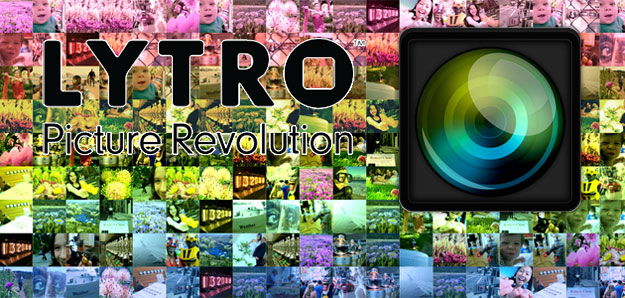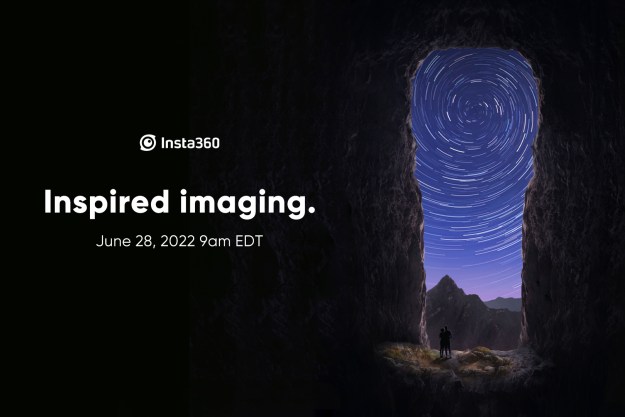
Make sure to check out our full Lytro Camera review.
After introducing its focus and refocus technology earlier this year, Lytro went into stealth mode, offering brief glimpses of its process and peaks at its images. The digital imaging innovator also got the camera into the hands of several industry photographers, whose test shoots have made their way around the Internet.
We’ve gotten plenty of looks at what Lytro technology can do, but still no concrete idea of what we’ll see at launch. What does it look like? Is it a point and shoot? Will it be high-end, or for entry-level consumers?
While finite details will have to wait until Lytro releases the device (which is supposed to be within the year), we were able to glean a few details from the photographers who have been testing the camera. And suffice it to say, we’re prepared to be impressed.
Jason Bradley is a professional photographer based in Monterey, California, who, like many industry experts, wasn’t immediately convinced by Lytro. “As I was first being told about the camera and asked if I’d like to be a part of the team and shoot with the camera, I was skeptical about what it was and I didn’t really understand what it was. The technology had to be explained to me and I had to do some research on my own.”

He admits he wasn’t entirely familiar with plenoptics, but joined the project. “Initially, I was unimpressed with the results. The idea of it interested me quite a bit. But as the camera has evolved [since I first started shooting with it] my opinion has grown immensely. I truly believe this technology will take over the industry.”
Bradley isn’t the only non-believer out there. Richard Koci Hernandez, another member of Lytro’s pilot program and an assistant professor of new media at UC Berkeley as well as a former photojournalist for the San Jose Mercury News acknowledges that there is a fair amount of doubt from the industry in general.

“My gut says it’s in its infancy and that the technology is young and will mature. It will make a nice consumer splash. But I can already tell you from my experience with professional photographers and photojournalists…is that they don’t like it. They are very skeptical, and that’s okay. They see it as a novelty and a consumer level feature. And I think that that mentality will be around until Lytro or whoever can get to a point where they’ve matured the technology and are able to present it into a professional level camera.”
“There’s nothing wrong with the technology now,” Hernandez is quick to point out. “My professional opinion is just that [professional photographers will be interested] when it comes in a package that’s familiar to them.”
While that may be true, both agree that the Lytro camera is a game changer. “Everybody years from now in some form will be using this type of technology when they shoot,” says Bradley. “It’s the wave of the future, as corny as that sounds.”
Hernandez characterizes it as a piece of technology that has “lived up to the hype.” “This has the potential to set the industry on a different path. It’s like when digital photography was introduced, that was a big deal. The only other massive movement for the industry was when autofocus came in and changed everything.”
Both photographers liken Lytro to the advent of digital over analog photography, a sweeping new technology that represents a turning point. And it seems as though Lytro will initially be a hit with entry-level shooters—those who defer to their camera’s auto mode and are enjoying the onset of features like built-in editing and filters (Hernandez mentions there might be some sort of 3D feature with Lytro as well, a growing consumer trend). Most importantly for the average buyer, Lytro will essentially take yet another manual tool out of the game: Focus.
“When it really hit me was when I went back after the first few test runs and I realized I didn’t have to worry about focus. Anyone who shoots generally, when you put a camera on auto mode it will take care of aperture and shutter speed, which can be confusing for nonprofessionals. But you still have to focus the camera, and that can be tedious,” Hernandez says, noting that auto focus isn’t always a catch-all.
That said, neither believe that its beginner appeal will dissuade more advanced photographers from adopting Lytro in the long run. Hernandez says he imagines it becoming a normal part of digital photography workflow, and Bradley admits he’s “hooked on” the camera. “From now on I will always own some type of plenoptic camera.”
But what kind of camera is Lytro? Neither Bradley nor Hernandez could tell us exactly: In the essence of secrecy, the cameras are outfitted in “masks” which enable the photographers to use them without revealing what they look like.
Hernandez was able to offer some basic descriptions of what he’s working with, however. He says what he’s been shooting with is an all-automatic point and shoot with a zoom and backside display for viewing. It’s small and has the “feel of an everybody, consumer-level device,” he says. Of course, as he notes, this could just be the nuts and bolts of Lytro’s model housed in whatever they scraped together for testing purposes.
Photography buffs may want to push cynicism aside and give Lytro the benefit of the doubt, because this early insight could be the next wave of digital photography. And if the technology has as much widespread appeal as it sounds, we’d bet on its success and adoption in the industry.
[Photos of Bradley and Hernandez shooting with the Lytro camera via Lytro blog]
Editors' Recommendations
- Best GoPro deals: Save on action cameras and accessories
- Save $100 on the water-resistant GoPro Max 360 action camera
- Nikon sale: Get up to $700 off select Nikon cameras and lenses
- How to turn off the camera sound on an iPhone
- DJI Pocket 2 handheld 4K camera with gimbal is 20% off right now

